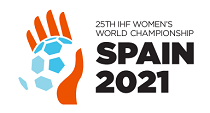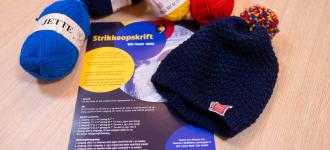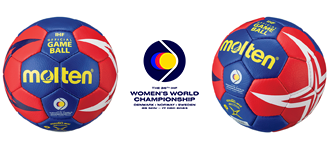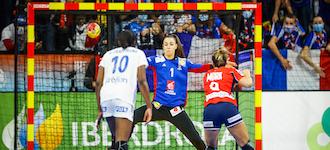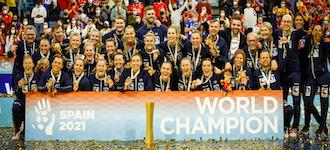Equipped for greatness: How Hungary are translating success from the juniors to the seniors
08 Dec. 2021
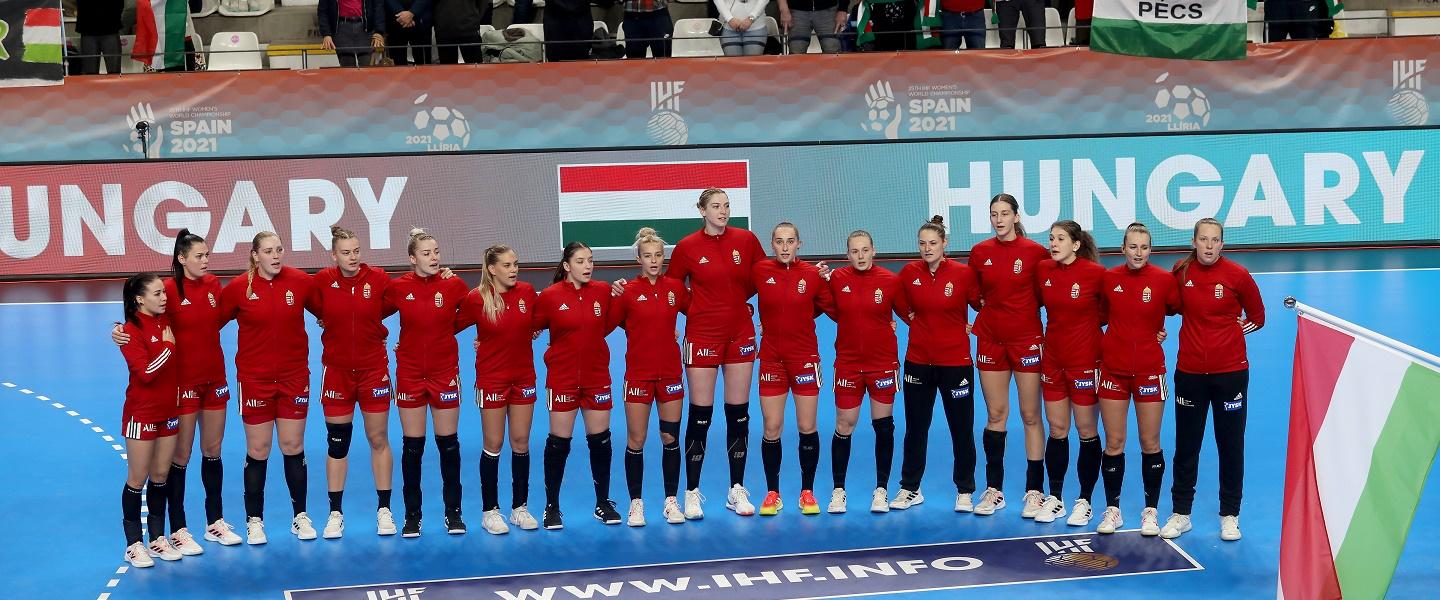
The gold medal at the IHF Women’s Junior World Championship in 2018. Another two gold medals at the Women’s 19 EHF EURO in 2019 and 2021. And more of the same at the Women’s 17 EHF EURO in 2019 and 2021. Hungary are definitely doing something right, having dominated youth and junior handball for the past few years. Is it high time they translated the success to the senior side, the one that won the EHF EURO 2000 and secured the silver medal at the IHF Women’s World Championship in 2003 and the bronze medal two years later?
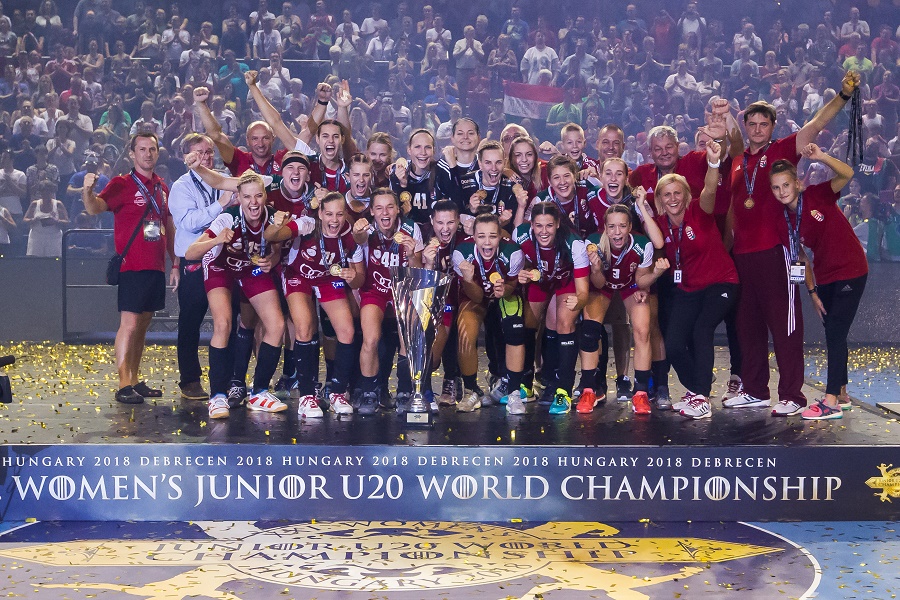
“You cannot compare the IHF Women’s World Championship to other competitions. When our players competed in the junior and in the youth competitions, they were playing against rivals their age. They are now pitted against the best players in the world. The difference is huge in every aspect: physically, tactically and professionally,” said Hungary women’s senior national team coach, Vladimir Golovin, to ihf.info.
Make no mistake, Golovin, who assumed the position after the Olympic Games Tokyo 2020, replacing the experienced pair of Gabor Danyi and Gabor Elek, is an experienced coach at both the professional level and at the junior and youth levels.
He was the one leading the Hungary junior women’s team when they became both world champions in 2018 and European champions in 2019, therefore knows a thing or two about these generations and the way they came of age.
Golovin, who was born in Odessa, in the Crimean Peninsula, a part of the former Soviet Union, went to Hungary in 1992, became a Hungarian citizen after playing and coaching in the country. He has also been involved at senior level, spending his last decade at Siófok KC and MTK Budapest, while also taking over the Hungarian women’s junior team since 1998.
Therefore, he is the go-to man to ask about the development of players and their integration in the senior team whenever possible. In fact, Hungary are one of the powerhouses with the youngest average age at Spain 2021, 24.8 years old, the seventh-youngest in the competition, beaten only by Uzbekistan, the Czech Republic, Montenegro, Kazakhstan, Austria, the People’s Republic of China and Angola.
“We had a steep positive curve regarding the number of children taking up handball and the Hungarian Handball Federation joined the clubs in focusing on developing them. Fortunately, we have plenty of talented players, but, as it has been proven time and time again, talent does not win medals in senior level. The players still have to work very hard to win games and progress on a game-by-game basis,” added Golovin.
From the roster that won the IHF Women’s Junior World Championship in 2018, six players are in the roster for Spain 2021, left wings Greta Marton and Csenge Fodor, backs Noemi Hafra, Greta Kacsor and Katrin Klujber and line player Petra Tovizi.
Right back Klujber and left back Hafra are also Hungary’s top scorers after three games, combining for 33 of their team’s 91 goals, or 36.2%. They also are the most experienced from the crop that triumphed three years ago, plying their trade every week in the DELO EHF Champions League for their current club teams, powerhouses FTC-Rail Cargo Hungaria and Győri Audi ETO KC. The pair is also on par to hit the 200-goal milestone for Hungary, with Klujber scoring 192 goals, seconded by Hafra, with 173 goals.
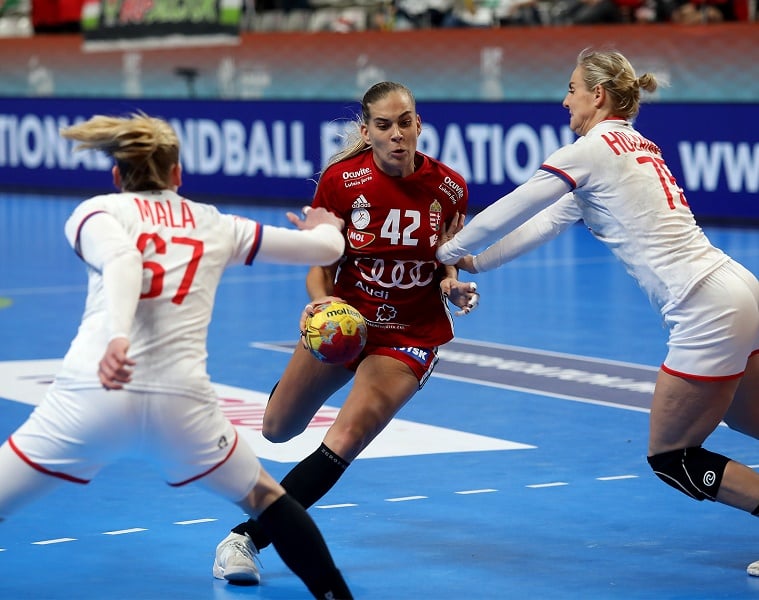
“I was basically fast-tracked in Hungary’s senior national team. My last junior tournament was in 2018 and then I made my debut at the IHF Women’s World Championship only one year later, at Japan 2019. It was quite easy for me, because I have many teammates from the club level, but playing good is always a challenge, since I try to give my best every time,” said Klujber.
Hafra, who is still 23 years old and six months older than Klujber, made her debut at an international tournament even faster, at Germany 2017. That helped her grow easily and establish herself as one of the sharpshooting left backs in European handball, allowing her a steady growth.
“I was lucky to make my debut at Germany 2017, which was a huge gift for me. The tempo was higher, I learnt the basic so well and it helped me a lot when we became world champions at the junior level. I still remain humble, there is a lot of work I need to do to become one of the best on my position,” said Hafra.
The 23-year-old back is still only the eighth youngest player in the squad, underlining the challenge Golovin has on his hands. Heading to an IHF Women’s World Championship with unexperienced players – the average number of international games per player before Spain 2021 for this roster was 30.8 – is always a risk, one Golovin really embraced, relying on his experience with the Hungarian junior team.
As Hungary finished 15th at Germany 2017 and 14th at Japan 2019, they did not have much to lose, therefore building a new team to rival the one that was one of the best in the world between 1996 and 2005, when they secured the gold medal at the EHF EURO 2000, was a challenge he could say no to.
“Having this talented generation on our hands, the question is how well will we do in the next years. We have these examples from the past, when talented players developed well and were successful at the senior level, but also some which went the opposite way. It would be easy to convert the medals from the junior level to the senior one, but it is nothing that comes automatically. So therein lies the dilemma,” said Golovin.
The 51-year-old coach is seconded by Hafra, his preferred left back at Spain 2021.
“It does not matter how old are you in the senior level, what matters is the win. Of course, the advantage is ours for the taking to have this type of chemistry. Our experience and success were superb in the junior level, yet we still need to perform here.”
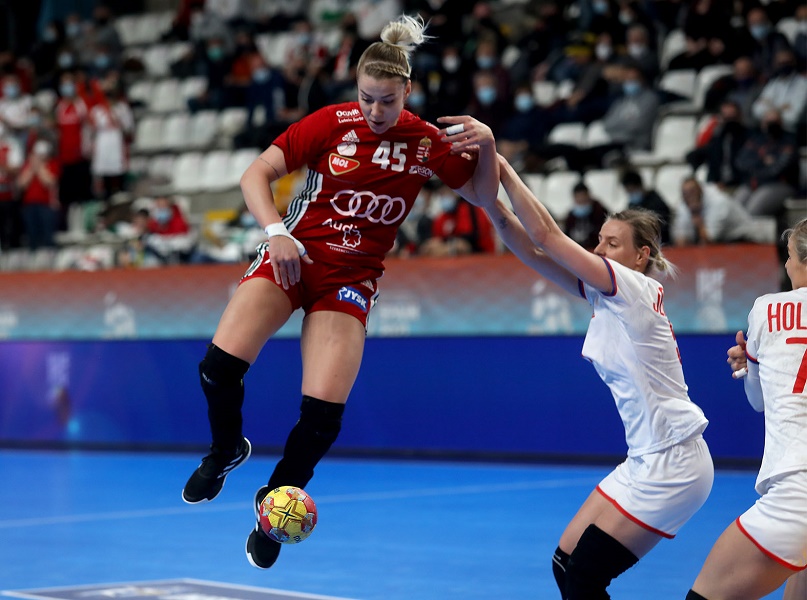
Up until this point, Hungary are on par with the requirements at Spain 2021, having won two games, against the Czech Republic and Slovakia, but lost against Germany by the slightest of margins, 24:25, in the preliminary round.
They will feature in Group III of the main round, with games against Denmark, the Republic of Korea and Congo, with their Wednesday’s game against the Scandinavian side paramount for their future in the competition. A win would see them back through contending for a quarter-final berth, but they are still heading for their best result at the IHF Women’s World Championship since the eighth place at Serbia 2013.
“We lost against Germany so we are not satisfied, but that is in the past now. We have to learn from our losses and carry on in the main round with good feelings. What matters now are the three matches we will play in.”
“At the Tokyo 2020 Olympic Games this summer, we lost our first three matches and needed to win against Spain and Sweden to progress to the quarter-finals. We did that and qualified, so it can also happen again,” said Klujber.
Golovin agrees.
“Our preliminary round group featured only European teams, it was the only one in the competition to be so balanced. We played our hearts out, we won twice, lost against Germany and it was a huge game, we fought until the end.
“The goal is to eliminate the ups and downs, normal for a team this young. Consistency is key at this level and when we learn to be like that, then we can enjoy our game even more,” said Hungary’s coach.
It was only a few years ago that Hungary featured players like Anita Gorbicz, Zsuzsanna Tomori or Zita Szucsanszki in the squad, but their time has passed and the baton was passed to Klujber or Hafra.
Klujber is the youngest active player coming close to scoring 200 goals for Hungary women’s national team, but Gorbicz’s record, of 1,111 goals in 233 matches is still far away. Yet, the right back has an average of 4.8 goals per game for her national team, slightly better than Gorbicz’s 4.76 goals per game.
Will she become the all-time top scorer for Hungary?
“It feels good even to be mentioned in the same sentence with Anita Gorbicz and I am happy when I score, but the most important thing is our team winning.
“Goals are just statistics when you look at them, which can prove important when I finish my career, but now the focus is only winning games,” concluded Klujber.
Who can blame her, when she won nearly everything at the junior level? The key is to translate that in the big league. For now, Hungary looked perfectly equipped to contend in the future, having both the know-how and the talent.
Photos: RFEBM / J. Navarro


